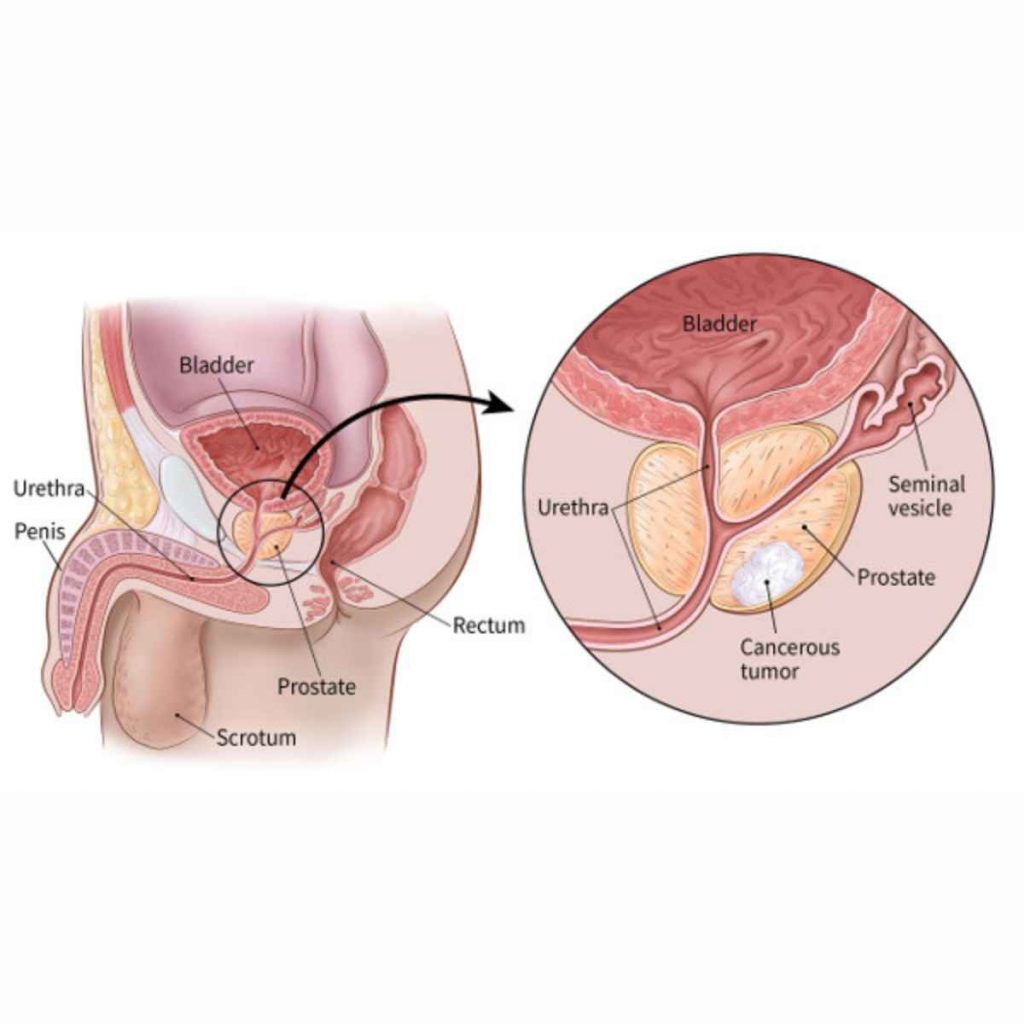Prostate cancer remains one of the most prevalent cancers among men worldwide, yet the landscape of its treatment is rapidly evolving. Advances in research, coupled with groundbreaking clinical trials, are paving the way for more effective, targeted, and less invasive treatments. These innovations offer renewed hope, not only for managing the disease but also for significantly improving patient outcomes and quality of life.
In this blog, we’ll explore the latest breakthroughs in prostate cancer research and highlight some of the most promising clinical trials driving the future of care.
Prostate Cancer: A Persistent Challenge
Prostate cancer develops in the prostate gland, a small organ in men located below the bladder. While many cases progress slowly, others can be aggressive and life-threatening, underscoring the need for improved detection and treatment strategies.
- Global Impact: Prostate cancer is the second most common cancer among men, with over 1.4 million new cases diagnosed annually.
- Survivability: When detected early, prostate cancer boasts a high survival rate. However, advanced-stage cases remain challenging to treat effectively.
The complexity of prostate cancer—its varied progression and resistance to standard treatments—has propelled research efforts into innovative therapies.

Recent Advances in Prostate Cancer Research
Research has shifted focus from a one-size-fits-all approach to a more personalized and precise understanding of the disease. These advancements are driving improvements in how prostate cancer is diagnosed, monitored, and treated.
1. Precision Medicine
The rise of precision medicine is revolutionizing prostate cancer care. By analyzing genetic and molecular profiles, researchers can identify biomarkers that predict how a patient’s cancer will behave and respond to treatment.
- Androgen Receptor Targeting: Since prostate cancer often depends on male hormones (androgens) to grow, new drugs are targeting the androgen receptor pathway more effectively, minimizing resistance to treatment.
2. Imaging Breakthroughs
Modern imaging techniques like PSMA-PET scans (prostate-specific membrane antigen positron emission tomography) are redefining how prostate cancer is detected and staged. These advanced scans provide unparalleled precision, enabling doctors to locate even microscopic cancer spread.
3. Immunotherapy
Harnessing the body’s immune system to combat prostate cancer is a promising area of research. Trials investigating immune checkpoint inhibitors, cancer vaccines, and adoptive T-cell therapies have shown potential, particularly in advanced or castration-resistant prostate cancer.
Promising Clinical Trials in Prostate Cancer
Clinical trials are the cornerstone of innovation, turning scientific discoveries into actionable treatments. Here are some of the most exciting trials underway:
1. PARP Inhibitors for Genetic Mutations
PARP inhibitors like olaparib and rucaparib are showing promise for prostate cancers with BRCA1/BRCA2 or other DNA repair mutations. These drugs exploit vulnerabilities in cancer cells’ DNA repair mechanisms, causing them to self-destruct.
- Key Trial: The PROfound trial demonstrated that olaparib significantly delayed disease progression in men with metastatic castration-resistant prostate cancer (mCRPC) and certain genetic mutations.
2. Targeted Radiotherapy
New radiopharmaceuticals like 177Lu-PSMA-617 are designed to deliver radiation directly to prostate cancer cells, minimizing damage to healthy tissue.
- Key Trial: The VISION trial showed that this therapy improved survival rates in men with advanced prostate cancer who had already exhausted conventional treatments.
3. Immunotherapy Trials
Cancer vaccines and immune checkpoint inhibitors are being explored for prostate cancer treatment. These therapies aim to stimulate the immune system to recognize and destroy cancer cells.
- Key Trial: Trials involving sipuleucel-T (Provenge), an FDA-approved cancer vaccine for mCRPC, are expanding its use to earlier stages of the disease.
4. Combination Therapy Studies
Combining different therapies, such as hormonal treatments with targeted drugs or radiotherapy, is showing potential in improving outcomes for patients with advanced or high-risk prostate cancer.
How Clinical Trials Are Shaping Prostate Cancer Care
Clinical trials not only provide patients with access to cutting-edge therapies but also generate critical data that informs future standards of care. They are addressing longstanding challenges in prostate cancer treatment:
- Improving Survival Rates: Trials are helping identify therapies that extend survival, even in late-stage or aggressive forms of the disease.
- Enhancing Quality of Life: By reducing treatment-related side effects, newer therapies allow patients to maintain better physical and emotional well-being.
- Personalized Treatment: Clinical trials are advancing the move toward tailored therapies based on genetic, molecular, or lifestyle factors.

Participating in a Prostate Cancer Clinical Trial
If you or a loved one has been diagnosed with prostate cancer, clinical trials may be worth exploring. They offer access to innovative treatments that could significantly improve your outcome or provide new options if standard therapies are no longer effective.
How to Choose the Right Trial
- Understand the Trial’s Purpose: Learn about the goals, treatments being tested, and expected outcomes.
- Evaluate Eligibility: Check the trial’s inclusion and exclusion criteria to ensure it matches your medical profile.
- Discuss With Your Doctor: Collaborate with your healthcare provider to determine if a specific trial aligns with your treatment goals.
- Consider the Logistics: Assess the location, frequency of visits, and potential costs or reimbursements.
The Role of Prevention and Early Detection
While research focuses on advanced treatments, prevention and early detection remain critical in the fight against prostate cancer.
- Screening: Regular prostate-specific antigen (PSA) testing can help identify prostate cancer at an earlier, more treatable stage.
- Healthy Lifestyle Choices: Maintaining a balanced diet, regular exercise, and avoiding smoking can reduce the risk of developing aggressive prostate cancer.
Prostate cancer research has made remarkable strides, and the future looks promising. With ongoing clinical trials and advancements in precision medicine, imaging, and immunotherapy, the outlook for patients continues to improve. These innovations are not just extending lives—they are enhancing the quality of life for countless individuals navigating a prostate cancer diagnosis.
At Horizon Trial, we are dedicated to connecting patients with the most promising clinical trials, empowering them to access cutting-edge treatments and contribute to the next wave of medical breakthroughs. If you’re seeking innovative care options, our platform is here to guide you every step of the way.

